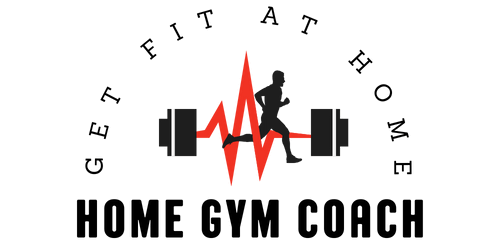Are you tired of dealing with digestive issues and looking for a natural solution? Look no further! In this article, we will explore the benefits of custom workout plans specifically designed to enhance your digestive health. These personalized plans take into consideration your unique needs and goals, helping you restore balance to your gut. With a friendly approach, we will guide you through the steps to improve digestion through targeted exercises, giving you the tools to lead a happier and healthier life. Say goodbye to uncomfortable bloating and embrace a more comfortable and efficient digestive system with our custom workout plans.
1. Importance of Digestive Health
The digestive system plays a crucial role in maintaining overall health and well-being. It is responsible for breaking down food, absorbing nutrients, and eliminating waste from the body. When the digestive system is functioning properly, you can experience increased energy levels, improved mood, and enhanced immune function. However, poor digestive health can lead to a range of uncomfortable symptoms and long-term health issues. That’s why it’s essential to understand how the digestive system works, the impact of poor digestive health, and the benefits of improving digestive health.
1.1 How the Digestive System Works
The digestive system is a complex network of organs and processes that work together to process food and extract nutrients. It begins in the mouth, where food is ingested and broken down by enzymes in saliva. The food then travels down the esophagus into the stomach, where it is further broken down by stomach acid. From there, it enters the small intestine, where nutrients are absorbed into the bloodstream. The remaining waste moves into the large intestine, where water is absorbed and the waste is formed into stool. Finally, the stool is eliminated from the body through the rectum and anus.
1.2 Impact of Poor Digestive Health
When the digestive system is not functioning properly, it can lead to a variety of digestive issues such as indigestion, heartburn, constipation, and diarrhea. These conditions can cause discomfort, pain, and interfere with daily activities. Chronic digestive issues can also lead to more serious health problems such as nutrient deficiencies, weight gain or loss, and increased risk of developing inflammatory bowel diseases. Additionally, poor digestive health can have a negative impact on mental health, as the gut and brain are closely connected. Studies have shown that imbalances in the gut microbiome can lead to mental health issues such as anxiety and depression.
1.3 Benefits of Improving Digestive Health
Improving digestive health can have numerous benefits for overall well-being. When your digestive system is functioning optimally, you may experience reduced digestive issues, increased energy levels, improved mood, better nutrient absorption, and enhanced immune function. Additionally, maintaining good digestive health can help prevent more serious health conditions, such as inflammatory bowel diseases and certain types of cancer. By focusing on improving your digestive health, you can enhance your overall quality of life and longevity.
2. Understanding Common Digestive Issues
To effectively improve digestive health, it is essential to understand common digestive issues and their causes. Here are three common digestive issues:
2.1 Indigestion and Heartburn
Indigestion, also known as dyspepsia, is a common digestive issue characterized by discomfort or pain in the upper abdomen. It can be caused by overeating, eating too quickly, consuming spicy or fatty foods, or experiencing high levels of stress. Heartburn, on the other hand, is a burning sensation in the chest that occurs when stomach acid flows back into the esophagus. It is often triggered by certain foods, such as citrus fruits, tomatoes, chocolate, caffeine, or alcohol. Both indigestion and heartburn can be managed and alleviated through lifestyle changes, including dietary modifications, stress reduction, and maintaining a healthy weight.
2.2 Constipation
Constipation refers to difficulty in passing stools or infrequent bowel movements. It can occur due to a variety of factors, including inadequate fiber intake, dehydration, lack of physical activity, certain medications, or underlying medical conditions. A sedentary lifestyle and poor dietary choices are often contributing factors to constipation. To alleviate constipation, it is important to consume a high-fiber diet, stay hydrated, exercise regularly, and develop healthy bathroom habits.
2.3 Diarrhea
Diarrhea is characterized by loose or watery stools, often accompanied by abdominal cramps and urgency to use the bathroom. It is usually caused by a viral or bacterial infection, food intolerance, certain medications, or stress. Diarrhea can lead to dehydration and nutrient loss. To manage and prevent diarrhea, it is crucial to stay hydrated, consume easily digestible foods, avoid trigger foods, and practice good hygiene.

3. Customizing Workout Plans for Digestive Health
Exercise plays a key role in improving digestive health, as it helps to stimulate the digestive system, reduce stress, regulate bowel movements, and maintain a healthy weight. However, not all exercises are created equal when it comes to digestive health. Customizing a workout plan specifically tailored to improve digestive health can maximize the benefits. Here are some important factors to consider when designing a personalized workout plan:
3.1 Consultation with a Healthcare Professional
Before starting any new exercise program, it is advisable to consult with a healthcare professional, such as a doctor or a fitness trainer. They can provide guidance based on your specific needs, medical history, and fitness level.
3.2 Identifying Triggers and Food Sensitivities
Certain foods can trigger or worsen digestive issues. Identifying these triggers and food sensitivities can help you make informed dietary choices and avoid discomfort during exercise. Keeping a food diary can be a helpful tool in identifying patterns and potential triggers.
3.3 Incorporating Cardiovascular Exercises
Cardiovascular exercises, such as jogging, swimming, or cycling, can improve digestion by increasing blood flow to the digestive organs. Aim for at least 150 minutes of moderate-intensity cardio exercises per week.
3.4 Including Strength Training
Strength training exercises, such as weightlifting or resistance training, can improve digestive health by promoting muscle mass and metabolic rate. Start with two to three sessions per week, focusing on different muscle groups each session.
3.5 Focusing on Core and Abdominal Exercises
Core and abdominal exercises, such as planks, crunches, or yoga poses, can help strengthen the muscles that support the digestive organs and improve digestion. Include these exercises in your workout routine two to three times per week.
3.6 Emphasizing Stress-Relieving Exercises
Chronic stress can disrupt the digestive system and exacerbate digestive issues. Stress-relieving exercises, such as yoga, tai chi, or meditation, can help reduce stress levels and promote relaxation, benefiting overall digestive health.
3.7 Considering Yoga and Meditation
Yoga and meditation have been shown to have positive effects on digestion. They can help relieve stress, promote relaxation, and improve blood flow to the digestive organs. Incorporate yoga and meditation into your workout plan for improved digestive health.
3.8 Incorporating Digestive-Specific Exercises
Certain exercises specifically target the digestive system, such as deep breathing exercises, pelvic floor exercises, or twists and stretches that massage the abdomen. Including these exercises in your workout routine can provide additional benefits for digestive health.
3.9 Maintaining a Consistent Workout Schedule
Consistency is key when it comes to reaping the benefits of exercise for digestive health. Aim for at least 150 minutes of moderate-intensity exercise per week, spread out over several days.
3.10 Listening to Your Body and Adjusting Accordingly
Pay attention to how your body responds to different exercises and adjust your workout plan accordingly. If certain exercises exacerbate digestive issues or cause discomfort, modify or replace them with more suitable alternatives.
4. Creating a Sample Workout Plan
Designing a sample workout plan for improving digestive health can provide structure and guidance. Here is a sample workout plan that incorporates various exercises:
4.1 Warm-up Exercises
Begin with dynamic warm-up exercises to prepare your body for the workout. This may include jogging in place, arm swings, leg swings, or shoulder rolls. Perform each exercise for 10-15 repetitions.
4.2 Cardiovascular Exercises
Choose cardiovascular exercises that you enjoy and that suit your fitness level. For example, you could go for a brisk walk, swim, cycle, or use an elliptical machine. Aim for 30-60 minutes of cardio exercise, three to five times per week.
4.3 Strength Training
Incorporate at least two to three strength training sessions per week. Focus on different muscle groups during each session. Include exercises such as squats, lunges, push-ups, dumbbell rows, and overhead presses. Start with one to three sets of 8-12 repetitions for each exercise.
4.4 Core and Abdominal Exercises
Include core and abdominal exercises two to three times per week. Examples of these exercises include plank variations, Russian twists, bicycle crunches, or bird dogs. Perform 2-3 sets of 10-15 repetitions for each exercise.
4.5 Digestive-Specific Movements
Integrate digestive-specific exercises into your routine. Deep breathing exercises, such as diaphragmatic breathing, can calm the nervous system and promote digestion. Pelvic floor exercises, such as Kegels, can also help improve digestion. Practice these exercises for a few minutes each day.
4.6 Cool-down Exercises
Finish your workout with static stretching exercises. Stretch each major muscle group, holding each stretch for 15-30 seconds. This will help reduce muscle soreness and improve flexibility.

5. Additional Tips for Improving Digestive Health
In addition to a custom workout plan, there are several lifestyle factors that can help improve digestive health. Incorporate the following tips into your routine to optimize your digestive well-being:
5.1 Maintaining a Balanced Diet
Eating a balanced diet with plenty of fiber, vegetables, fruits, lean proteins, and healthy fats is essential for good digestive health. Avoiding processed foods, excessive added sugars, and high-fat foods can also help prevent digestive issues.
5.2 Drinking Enough Water
Staying hydrated is crucial for digestive health. It helps soften stools, regulate bowel movements, and prevent constipation. Aim to drink at least eight glasses of water per day.
5.3 Getting Sufficient Sleep
Adequate sleep is important for overall health, including digestion. Aim for 7-9 hours of quality sleep per night to support optimal digestion.
5.4 Managing Stress Levels
Chronic stress can disrupt the digestive system and exacerbate digestive issues. Find healthy ways to manage stress, such as exercise, relaxation techniques, or engaging in hobbies that bring you joy.
5.5 Avoiding Trigger Foods
Identify foods that trigger digestive issues for you and avoid them as much as possible. Common trigger foods include spicy foods, fatty foods, caffeine, alcohol, and artificial sweeteners.
5.6 Practicing Mindful Eating
Slow down and pay attention to your body’s hunger and fullness cues when eating. Chew your food thoroughly, savor the flavors, and avoid distractions such as television or electronic devices.
5.7 Incorporating Probiotics
Probiotics are beneficial bacteria that can help promote a healthy gut microbiome. Consider incorporating probiotic-rich foods, such as yogurt, kefir, sauerkraut, or kimchi, into your diet. Alternatively, you can take a probiotic supplement after consulting with a healthcare professional.
6. Monitoring and Tracking Progress
Tracking your progress is important to see how your digestive health is improving over time. Here are some effective ways to monitor and track your progress:
6.1 Journaling Digestive Symptoms
Keeping a journal of your digestive symptoms can help you identify patterns and triggers. Note down any changes in symptoms, bowel movements, and dietary choices. This will allow you to make informed decisions and adjust your lifestyle accordingly.
6.2 Measuring Strength and Fitness
Regularly assess your strength and fitness levels to gauge progress. Track factors such as the weight lifted, repetitions performed, or endurance during cardiovascular exercises. This will help you see how your body is responding to the workout plan.
6.3 Seeking Regular Check-ups
Schedule regular check-ups with your healthcare provider to ensure that your digestive system is functioning optimally. They can assess your overall health and make any necessary adjustments to your exercise and dietary routines.

7. Professional Assistance and Guidance
Seeking professional assistance and guidance can further enhance your efforts to improve digestive health. Consider the following options:
7.1 Consulting with a Registered Dietitian
A registered dietitian can provide personalized nutrition advice, including guidance on specific dietary changes to improve digestive health. They can help you identify trigger foods, optimize your nutrient intake, and develop a sustainable meal plan.
7.2 Seeking Help from a Personal Trainer
If you are new to exercise or unsure about proper technique and form, working with a personal trainer can be beneficial. They can design a customized workout plan, provide guidance on exercises, and ensure that you are using proper form to prevent injury.
7.3 Working with a Gastroenterologist
If you have been dealing with chronic digestive issues or suspect an underlying digestive condition, it may be beneficial to consult with a gastroenterologist. They can conduct tests, provide a diagnosis, and develop a customized treatment plan based on your specific needs.
8. Precautions and Considerations
When embarking on a new workout plan or making changes to your exercise routine, it is important to take certain precautions and considerations into account:
8.1 Not Pushing Beyond Your Limits
Listen to your body and avoid pushing beyond your limits. Start slowly and gradually increase the intensity and duration of your workouts. If you experience pain or discomfort, take a break and consult with a healthcare professional.
8.2 Avoiding Overconsumption of Supplements
While supplements can play a role in digestive health, it is important to avoid overconsumption or reliance on them. Consult with a healthcare professional before incorporating any supplements into your routine to ensure they are safe and appropriate for you.
8.3 Taking Rest Days
Rest days are essential for muscle recovery and overall well-being. Allow your body time to rest and repair in between workouts to prevent overexertion and burnout.
8.4 Being Mindful of Existing Health Conditions
If you have any existing health conditions or injuries, consult with a healthcare professional before starting a new workout plan. They can provide guidance and modifications to ensure your safety and well-being.

9. Real-Life Success Stories
Hearing from individuals who have successfully improved their digestive health through exercise can provide inspiration and motivation. Here are two real-life success stories:
9.1 Hearing from Individuals Who Improved Digestive Health through Exercise
Jane, a 35-year-old woman, struggled with chronic indigestion and constipation for years. After consulting with a personal trainer, she developed a custom workout plan that incorporated cardiovascular exercises, strength training, and core exercises. Within a few months, Jane noticed a significant improvement in her digestion. Her indigestion and constipation episodes became less frequent, and she experienced increased regularity in her bowel movements. Jane credits her personalized workout plan for transforming her digestive health and enhancing her overall well-being.
9.2 Understanding their Journey and Strategies
Mark, a 45-year-old man, had been diagnosed with irritable bowel syndrome (IBS). He worked with a registered dietitian and a gastroenterologist to develop a comprehensive approach to manage his symptoms. Alongside dietary modifications, Mark incorporated regular exercise into his routine. He focused on cardiovascular exercises and stress-relieving activities, such as yoga and meditation. Over time, Mark noticed a reduction in IBS flare-ups and an overall improvement in his digestion. He emphasizes the importance of a holistic approach that includes exercise, stress management, and dietary changes in managing digestive conditions.
10. Conclusion
Improving digestive health is crucial for overall well-being and quality of life. Customizing a workout plan specifically tailored to improve digestive health can be an effective strategy. By consulting with healthcare professionals, incorporating various exercises, maintaining a healthy lifestyle, and tracking progress, you can optimize your digestive health and enhance your overall well-being. Remember, everyone’s needs and preferences are unique, so adjust your workout plan and lifestyle choices accordingly. With dedication and consistency, you can reap the benefits of exercise for improved digestive health and live a healthier, more fulfilled life.



